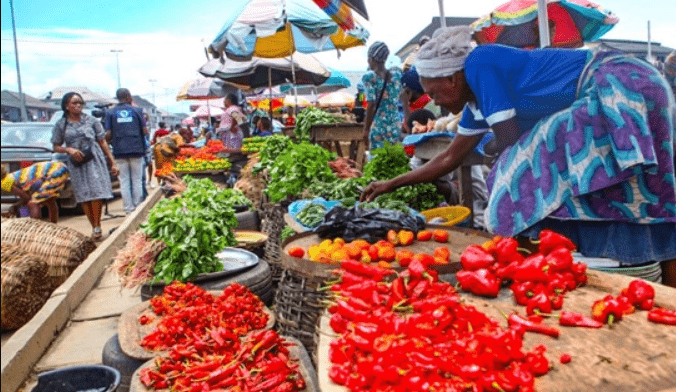
Nigeria’s annual inflation reached a new 28-year peak of 33.95% in May, according to official data released on Saturday. This marks the 18th consecutive month of rising inflation, up from 33.69% in the previous month.
The surge in prices has been driven by President Bola Tinubu’s economic reforms, including cutting subsidies on petrol and electricity and devaluing the naira currency twice within a year.
These measures have intensified public discontent, with labor unions suspending a strike over demands for a new minimum wage. Critics argue that these reforms disproportionately affect the poor, exacerbating Nigeria’s worst cost-of-living crisis in decades.
Data from the National Bureau of Statistics highlights that food and non-alcoholic beverages were the primary contributors to inflation in May. Food inflation rose to 40.66% from 40.53% the previous month, underscoring the severe impact on household budgets.
Analysts attribute the persistent inflationary pressures to elevated food prices and the depreciation of the naira.
In response, the central bank raised interest rates for the third time this year in May to curb inflation. Governor Olayemi Cardoso has signaled that rates will remain high as long as necessary to stabilize inflation.
